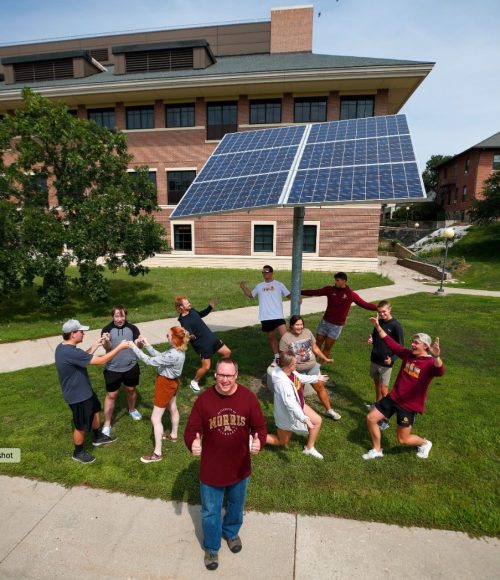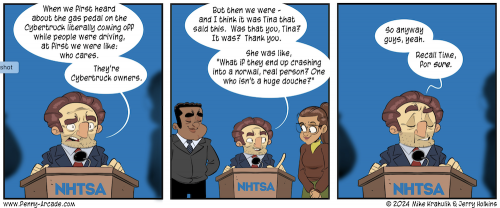Here is a typical gathering of UMM students, honoring the god of electricity.

UMN Morris is a clean energy leader and destination. We are carbon neutral in electricity. UMN Morris produces more clean electricity per student of any campus in the United States.
-100% carbon neutral electric status achieved in 2020
-1,000,000 lbs + of organic waste diverted from landfills by campus and community
composting program
-10 Million kWh electricity produced each year by two wind turbines
-Gold STAR rating (Association for the Advancement of Sustainability in Higher
Education)











